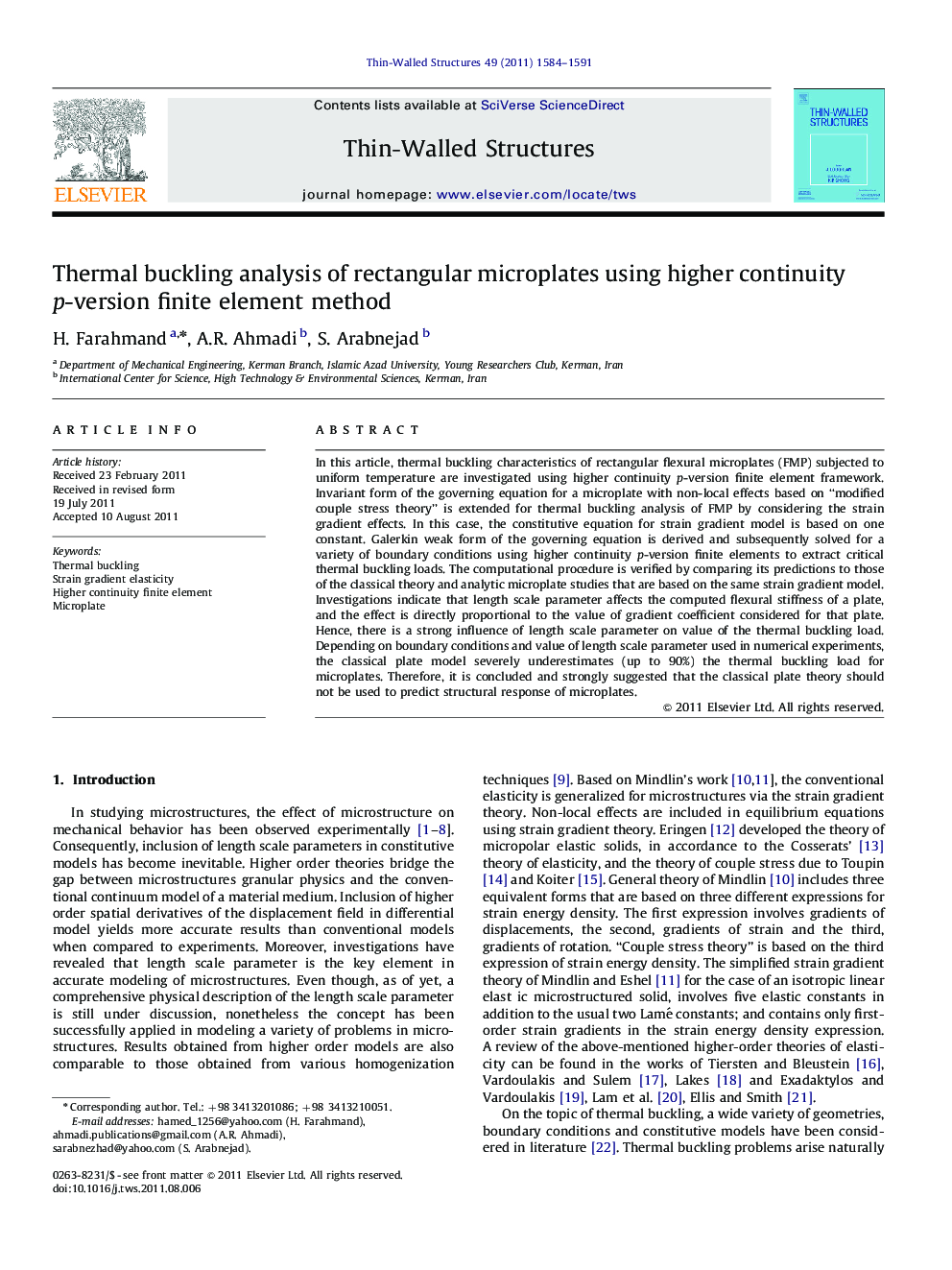| Article ID | Journal | Published Year | Pages | File Type |
|---|---|---|---|---|
| 309480 | Thin-Walled Structures | 2011 | 8 Pages |
In this article, thermal buckling characteristics of rectangular flexural microplates (FMP) subjected to uniform temperature are investigated using higher continuity p-version finite element framework. Invariant form of the governing equation for a microplate with non-local effects based on “modified couple stress theory” is extended for thermal buckling analysis of FMP by considering the strain gradient effects. In this case, the constitutive equation for strain gradient model is based on one constant. Galerkin weak form of the governing equation is derived and subsequently solved for a variety of boundary conditions using higher continuity p-version finite elements to extract critical thermal buckling loads. The computational procedure is verified by comparing its predictions to those of the classical theory and analytic microplate studies that are based on the same strain gradient model. Investigations indicate that length scale parameter affects the computed flexural stiffness of a plate, and the effect is directly proportional to the value of gradient coefficient considered for that plate. Hence, there is a strong influence of length scale parameter on value of the thermal buckling load. Depending on boundary conditions and value of length scale parameter used in numerical experiments, the classical plate model severely underestimates (up to 90%) the thermal buckling load for microplates. Therefore, it is concluded and strongly suggested that the classical plate theory should not be used to predict structural response of microplates.
► Development of a C2 finite element formulation to study thermal buckling in microplates. ► Study of buckling phenomenon under a variety of boundary conditions and length scale parameters. ► Study of jump-mode phenomenon as a function of plate's side ratio.
